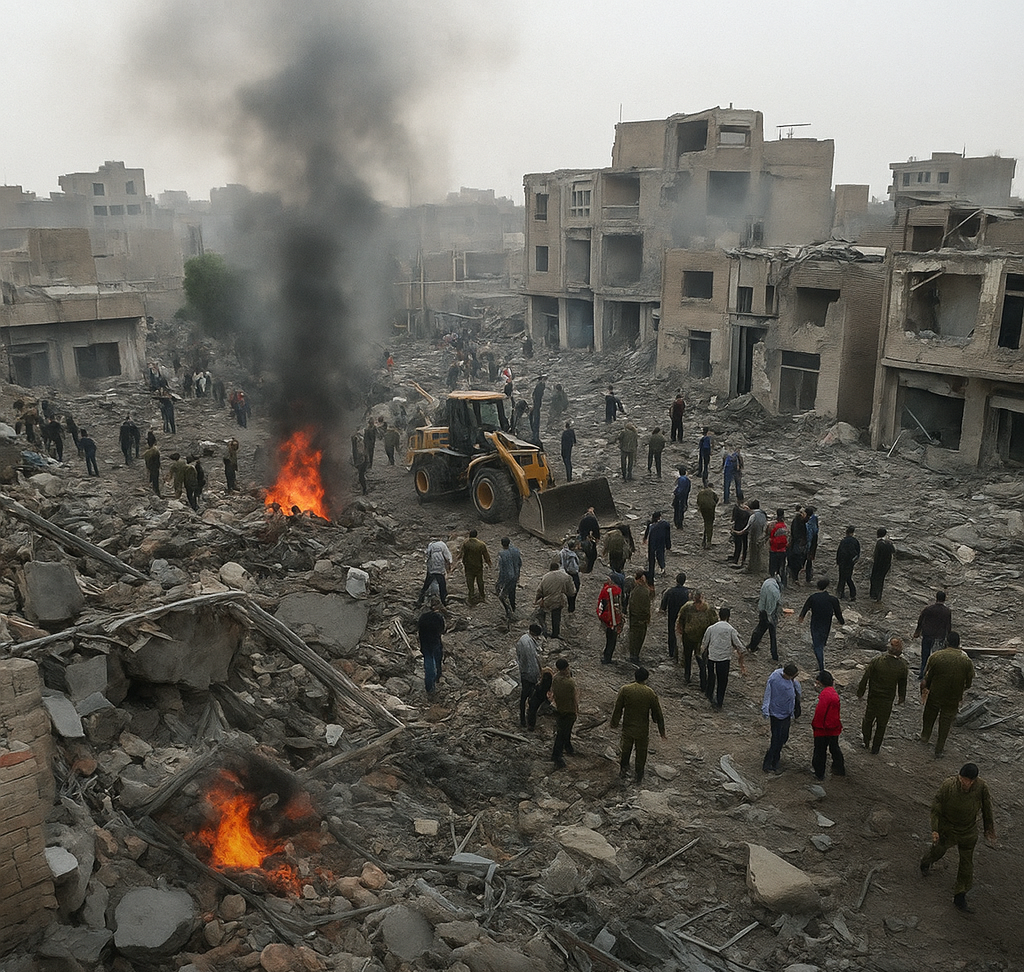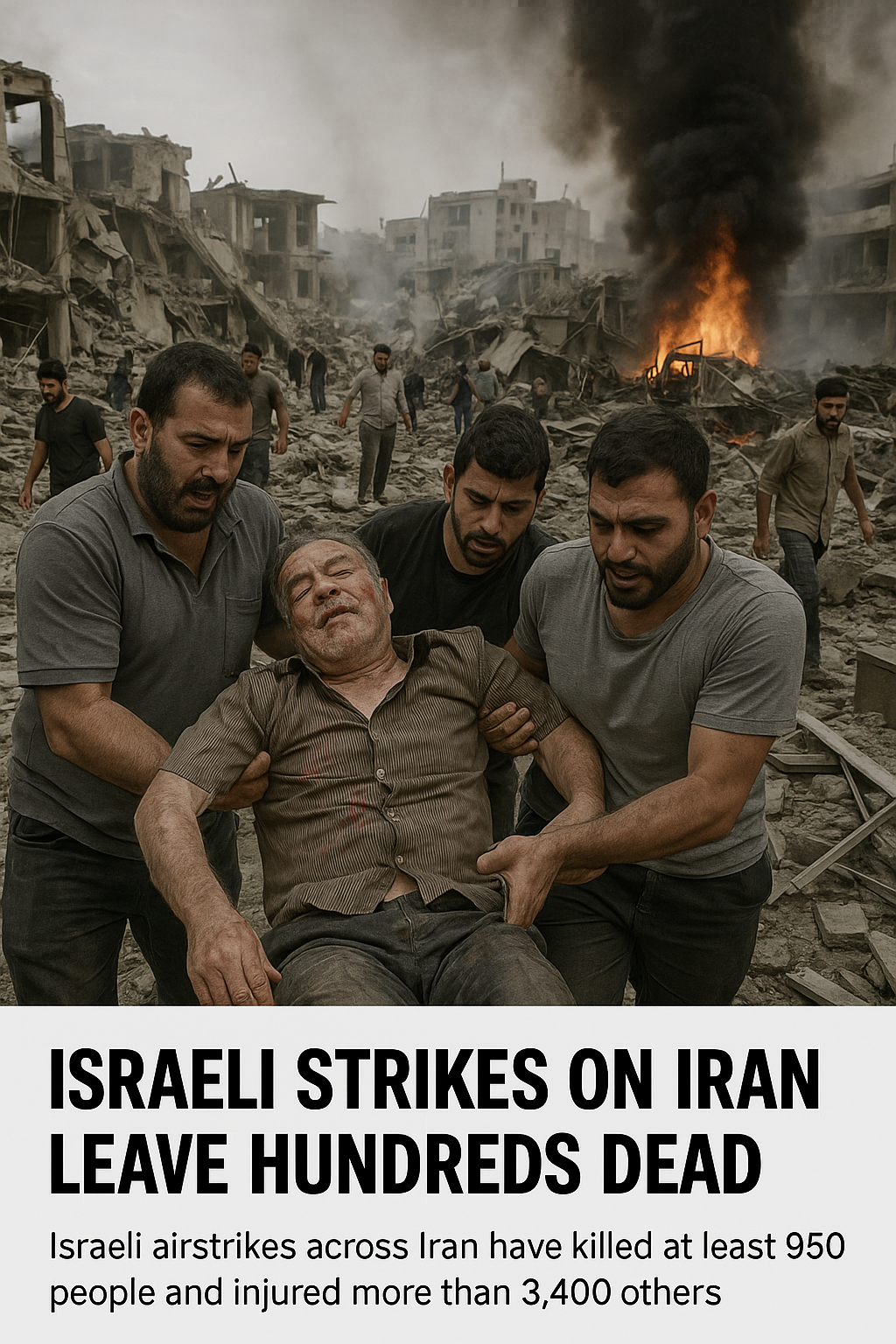A Washington-based human rights organization has reported that Israeli airstrikes across Iran have killed at least 950 people and injured more than 3,400 others. The group, Human Rights Activists (HRA), released the figures on Monday, highlighting the growing toll of the conflict.
According to HRA, the fatalities include 380 civilians and 253 members of Iran’s security forces. The group, known for documenting human rights violations and for its coverage of the 2022 Mahsa Amini protests, compiles data through a network of domestic sources and corroborates them with local reports.
The Iranian government has not released consistent or detailed casualty reports since the beginning of the strikes. Official statements have tended to downplay the extent of the damage. On Saturday, Iran’s Health Ministry acknowledged that about 400 people had been killed and over 3,000 injured, significantly lower than the numbers shared by HRA.
These latest strikes are among the deadliest in recent memory and have heightened regional tensions. The nature and locations of the attacks were not fully disclosed, but they reportedly targeted military installations and strategic infrastructure across multiple provinces.
The international community has expressed concern about the escalating violence and the potential for a wider conflict in the Middle East. Human rights groups have urged both sides to avoid targeting civilians and to adhere to international humanitarian laws.
The Iranian leadership has vowed to respond to the Israeli actions, while Israel maintains that its strikes are defensive, aimed at curbing threats from Iranian-backed forces. Analysts fear that continued hostilities could lead to greater instability throughout the region.
Human Rights Activists said it would continue monitoring the situation and updating its casualty figures as more information becomes available. The group emphasized the importance of transparency and accountability in times of armed conflict, especially in environments where press freedom is limited.
With no clear end in sight, the humanitarian toll continues to rise, prompting growing calls for international mediation and de-escalation efforts. Observers warn that without diplomatic intervention, the situation could spiral further out of control.








